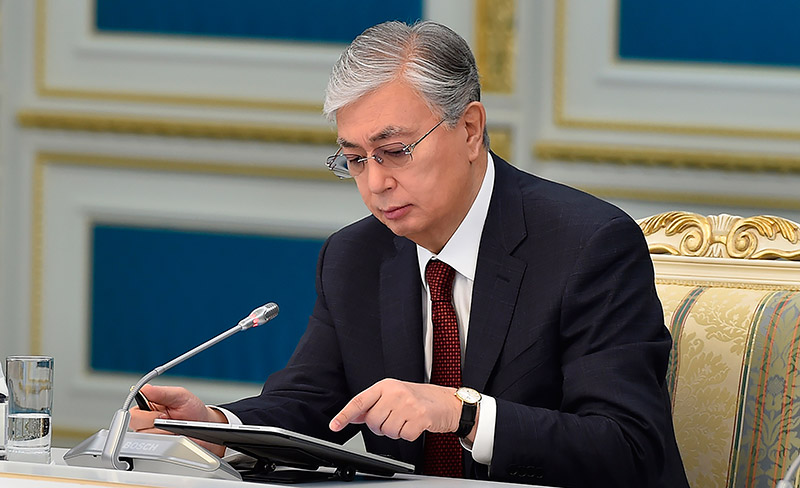ASTANA – Kazakhstan will continue a constructive and balanced foreign policy, taking into account the national interests, said President Kassym-Jomart Tokayev in an interview with the Egemen national newspaper published on Jan. 3. In 2024, the country is expected to host a series of summits and forums.

Kassym-Jomart Tokayev. Photo credit: Akorda.
Against the backdrop of a polarized international order, Kazakhstan continues to advocate for a multi-vector foreign policy. While the emerging challenges may complicate the conduct of such policy, it remains evident that there is no other alternative.
Kazakhstan follows a multi-vector foreign policy, which means it seeks to balance its relationships with different global powers. The country is not aligned with any single bloc or alliance, allowing it to engage with a diverse set of nations.
It has also consistently prioritized commitment to international law and the United Nations Charter and advocated for the use of peaceful and diplomatic means in addressing conflicts that continue to rise around the globe.
The huge responsibility lies on global leaders, wrote President Kassym-Jomart Tokayev in his opinion piece published in the American magazine The Hill in September. There, he emphasizes the critical juncture the world faces, acknowledging the urgency of addressing issues such as climate change, artificial intelligence, and the looming threat of nuclear annihilation. He contends that the decisions taken by leaders now will shape the course of history and influence generations to come.
This responsibility extends beyond their political career, “beyond even our time on Earth,” writes Tokayev. One of the initiatives that Kazakhstan promoted in its efforts to shape the “course of the future” is the establishment of a UN biological security agency.
“The experience of recent years has shown us that we have been woefully underprepared for threats which we were clearly aware of, but unconcerned with. We were wrongly confident in the assumption that such threats were unlikely to be realized on our watch,” writes the Kazakh President.
Among global leaders are also spiritual leaders, who, according to Tokayev, carry equally significant responsibility.
In his article published in The Jerusalem Post also in September, President Tokayev underscores the importance of new approaches to strengthen inter-civilizational dialogue and trust.
Kazakhstan’s multi-vector foreign policy aligns with his call for a global movement for peace amid divisive blocs and threats of a new global arms race.
In the article, he emphasizes the role of religious leaders in building a new system of international security. President Tokayev expresses pride in Kazakhstan hosting the Congress of Leaders of World and Traditional Religious, an initiative that the country has spearheaded since 2003.
President Tokayev proposes the involvement of religious leaders in healing societal wounds after conflicts, as seen in Kazakhstan’s contributions to the Astana Process peace talks. Additionally, his acknowledgment of the challenges posed by digital technology aligns with Kazakhstan’s efforts to balance the benefits of technological advancement with the need to preserve moral and humanistic values.
Kazakhstan’s multi-vector foreign policy positions Kazakhstan as a diplomatic hub that collaborates with various nations and organizations, fostering international cooperation and dialogue. It reflects the nation’s diplomatic agility and positions it as a key player in addressing the challenges and uncertainties of the contemporary world.
The nation concluded 2023 with a “strong record of growing national confidence in its strategy of a multivector foreign policy,” writes Michael Rossi, professor at Rutgers University, in his latest opinion piece for The Astana Times.
“This approach is expected to continue yielding positive results in 2024, as the increasing multipolarity of global politics places the country and the wider Central Asian region in the spotlight of international economic and political importance,” writes the expert.

